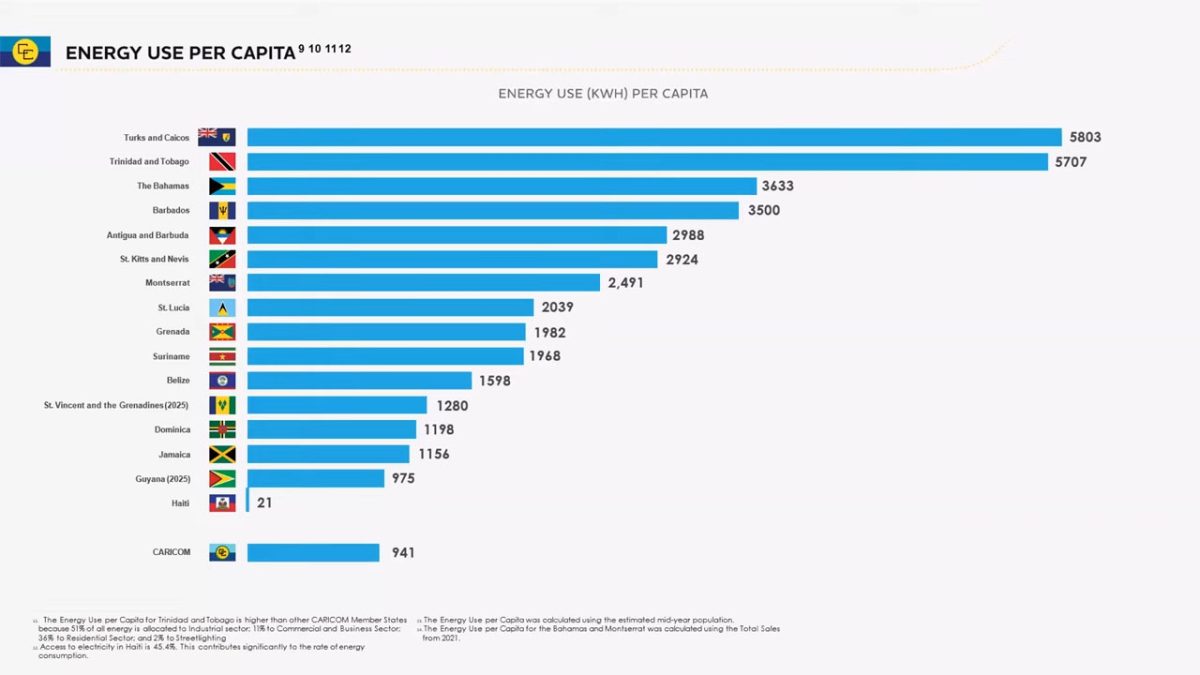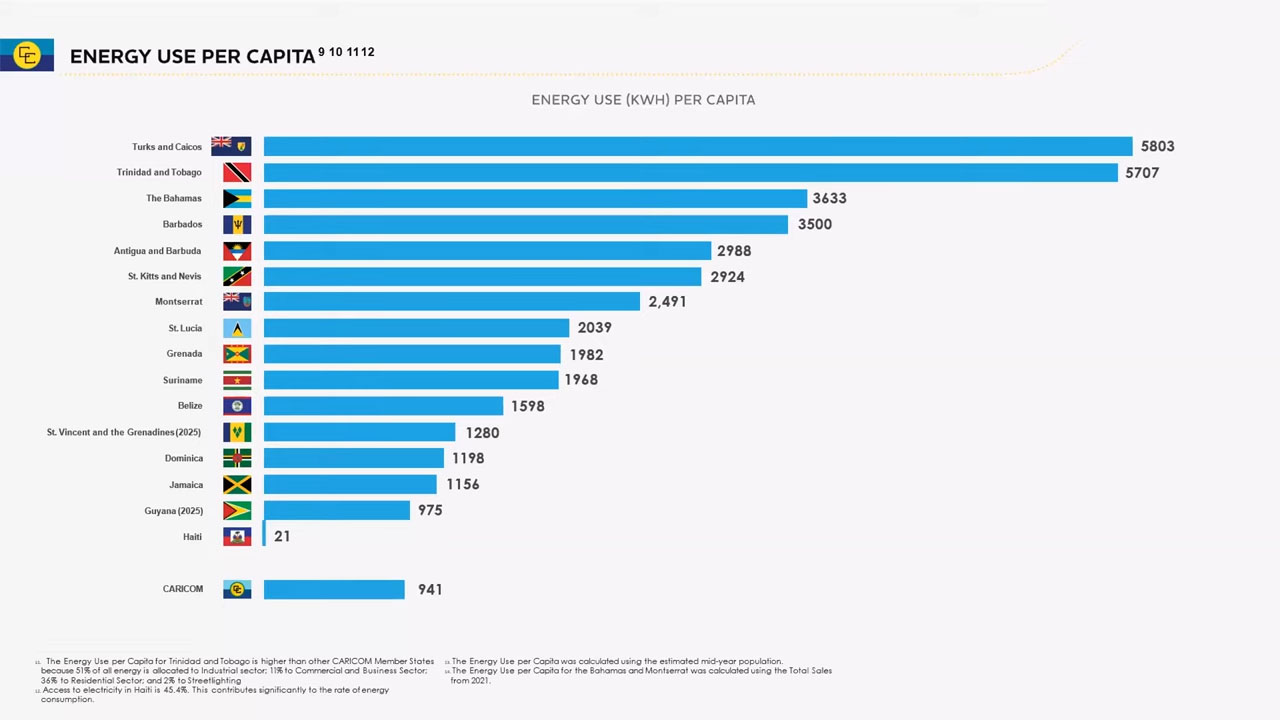CARICOM member states have made considerable strides towards achieving their renewable energy (RE) targets, reaching a “commendable” 12 per cent RE electricity penetration by 2022.
A release yesterday from CARICOM said that this milestone was highlighted during a webinar hosted by The Caribbean Centre for Renewable Energy and Energy Efficiency (CCREEE) on July 30.
The release said that the event marked the launch of the 2022 CARICOM Energy Report Cards (ERCs), titled “The Success of 12% by 2022.” The CARICOM ERCs provide an overview of the energy sector’s performance across the 15 CARICOM member states and the Turks and Caicos Islands.
Since the ERCs’ inception in 2017, they have played a crucial role in assessing progress, the release said.
While CARICOM set an “ambitious” target of achieving 27 per cent installed renewable energy capacity by 2022 and 47 per cent by 2027, Ayanna Evelyn, Knowledge Management Associate at The CCREEE, said that the region has already installed approximately 700 megawatts of renewable energy capacity.
Presenting the report’s findings, Evelyn acknowledged that while the 2022 target was not met, the region’s commitment to renewable energy remains unwavering. “The groundwork has been laid, and we anticipate even more significant progress reflected in the 2023 Energy Report Card, given the positive developments we’re witnessing within the sector,” she said.
In his remarks, Dr. James Fletcher, Chairman of The CCREEE, emphasised the Caribbean’s role as a leader in global climate action; despite contributing only 0.2 per cent to global greenhouse gas emissions, it suffers the worst effects of climate change.
“It is important for us to demonstrate that even being such small producers of greenhouse gas emissions, we are actively working to lower global temperatures back to 1.5 degrees Celsius. It helps with our negotiating within climate change spaces, especially within the United Nations Framework Convention on Climate Change (UNFCCC), demonstrating that we are leading by example,” Dr. Fletcher said.
Joseph Williams, Sustainable Energy Coordinator at the Caribbean Development Bank, underlined the importance of evidence-based policymaking and performance tracking in energy planning. He highlighted the critical role of ERCs in assessing progress and ensuring that the region meets its reporting obligations to the international community and partners.
Reporting on St. Kitts and Nevis’ decarbonisation efforts, the release said that Denasio Frank, Energy Officer of the Energy Unit, noted that while the dual-island nation has made significant progress toward its targets, work still remains to be done. With an estimated 1280 megawatts of geothermal energy potential and abundant solar energy resources, St Kitts-Nevis is poised for a transformative shift in its energy landscape. Frank also noted the development of a national grid code to encourage investment in solar energy and the need for an updated energy policy framework that includes provisions for small-scale distributed renewable energy systems and electric vehicles.











